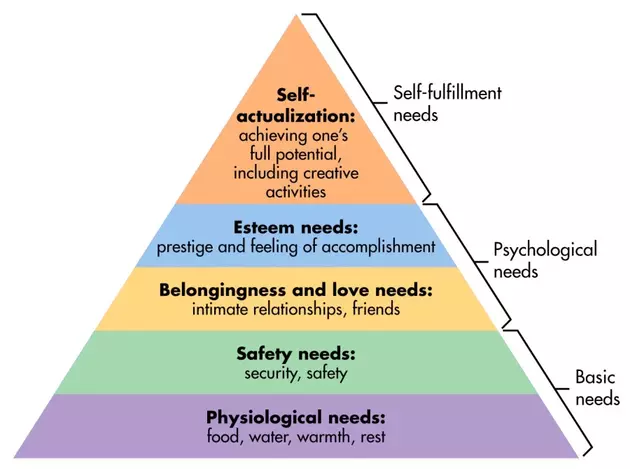
This post is for the owner of established consultancy businesses with 5-50 employees. Consultancy owners who are not only driven by making money but want to serve a purpose that is altogether more important. I have written it to help you understand why you want to grow your consultancy so that you can make the right strategic decisions to achieve your potential and live the best life you can.
Why do you want to grow your business?
If you ran a survey, 9 out of 10 business owners would probably say the main reason business owners want to grow their business is to make more money. Of course, why they want more money may vary from person to person, but essentially it comes back to more money.
After a conversation with Dr Carlos Saba from The Happy Start Up School, I would like to get you to rethink why you want to grow your business. Carlos said to me that he thinks the phrase “lifestyle business” has very negative connotations, and the stereotype is someone who does not take running a business seriously. Instead, he thinks that every business should be a lifestyle business; the owner should consciously decide the lifestyle they want to live.

That could range from being a solopreneur earning the bare minimum to support a modest lifestyle to somebody who works sixteen hours a day, seven days a week to afford the finer (read: expensive) things in life. As a business owner, it is vital to make conscious decisions about the lifestyle you want your consultancy business to provide you. If you think about it in this way, you may develop some alternative priorities that are equally important, if not more important than the default answer to the question “why do you want to grow” - money.

If you’re not growing you're dying
 This age-old quote applies to businesses as much as it does to people. The world does not stand still, and if you are not growing, you're dying. Even just to stand still, your business needs to be growing. You need to make sure you are acquiring new business as quickly as you are losing business because customer churn is inevitable for all companies. If you lose 2% of your customers every year, you need to be growing at least 2% to maintain the same position. You also need to factor in inflation. Your suppliers will be increasing their prices each year, and your staff will expect a pay rise each year. So just to maintain the same position, you need to be growing. You will want to factor in a price increase of 2% or more, which may mean losing more customers.
This age-old quote applies to businesses as much as it does to people. The world does not stand still, and if you are not growing, you're dying. Even just to stand still, your business needs to be growing. You need to make sure you are acquiring new business as quickly as you are losing business because customer churn is inevitable for all companies. If you lose 2% of your customers every year, you need to be growing at least 2% to maintain the same position. You also need to factor in inflation. Your suppliers will be increasing their prices each year, and your staff will expect a pay rise each year. So just to maintain the same position, you need to be growing. You will want to factor in a price increase of 2% or more, which may mean losing more customers.
What does success look like to you?

If we are on the same page so far, you will realise you need to grow your business even if you wanted to maintain your current position.
What lifestyle do I want?
In an article on how financially successful people define success, three very wealthy men gave three surprising answers considering how much money they have!
- Richard Branson says success is measured by how happy you are.
- Warren Buffet measure success by how many people love him
- Bill Gates measures success by making a difference - inventing something, raising kids or helping people in need
Their answers clearly show that if you measure success in other ways, it is possible to have an enriching career.
If you were sceptical, you could say that as they have loads of money, it is easy to give alternative measurements of success. It might just be that they got all that money because they measured their success in a better way and didn't just make wise business decisions.
I assume that happiness is important to you, even if you are currently sacrificing your happiness for more money.
Below is Maslow's hierarchy of needs. Maslow was an American psychologist who published a study in 1943 on human motivation.

Source: https://www.simplypsychology.org/maslow.html
Money is an essential factor in everyone's life, but above and beyond your basic physiological and safety needs, more money probably won't create long term happiness. Although you may feel money may help with self-esteem because you can buy a Rolex to tell everyone how successful you are, studies have proven that buying fancy stuff for yourself is unlikely to be the best way to boost your happiness or self-esteem.
Live with no regrets
I first saw this list in a TED talk many years ago, but it is still just as powerful today. Bronnie Ware was a nurse that looked after people in the final chapter of their lives when they were close to death.
Here were the top 5 regrets of people on their deathbed:
- I wish I had the courage to live a life true to myself, not the life others expected of me.
- I wish I hadn’t worked so hard.
- I wish I’d had the courage to express my feelings.
- I wish I’d stayed in contact with my friends.
- I wish I’d let myself be happier.
When designing your lifestyle, be sure to plan a life that won't leave you with any regrets on your deathbed. From Bronnie’s research, no one regretted not growing their business enough or not making enough money.

Can your business give you what you want?
When you set up your consultancy, you had a vision of what it would be like to run the company and what you wanted to get out of it.
You may be either
- Still heading in the right direction.
- Need to evolve your business or your role in the business.
- Realise you’re now heading in the wrong direction and need to make some changes.
If you are committing a big chunk of your life to grow your consultancy, it must be something you want to spend your life doing. Otherwise, it might be time for a change.
How to achieve more success in less time
Whatever you decide success looks like to you, one of the critical things you should improve is the rate at which you can generate that success, e.g. your productivity. Time available is always a limiting factor in every business. If it takes five days to generate 1 unit of success, what could you do to generate that level of success in four and a half days or even four days? Research studies have shown that some businesses have increased productivity by 20% working four days a week instead of five. It won't work in all businesses, but if your goal is to increase productivity by 20%, one option could be to reduce the amount of time people work. It sounds counterintuitive, but it could be true.
Motivate your team to grow in a better way?
Have you ever asked your staff what would motivate them to commit to continual improvement/growth of the business, a pay rise or one day off a week? In the studies I mentioned above, where the extra day off a week improves productivity by 20%, it should generate the cash flow to fund a pay rise anyway. If you purely focus on increasing revenue to fund a pay rise, it will be less likely that your people will achieve both goals.
How much growth is enough?

You need to decide what your life goals are and what you need to achieve to get there.
The story about a Mexican fisherman arguing with a CEO

I am sure you have heard the story about the fisherman and the CEO on a beach. The CEO sees the fisherman sitting on the beach relaxing next to his boat with his feet up halfway through the day. The CEO says, why don't you go out and catch some more fish? The fisherman says I have enough to feed my family a little more to sell to my neighbours, and I will spend the rest of the day with my wife and kids. The CEO said if you went out for the rest of the day, you could catch more fish and sell more, which would give you more money to buy another boat and employ some staff to catch even more fish and sell more fish buy more boats. If you kept doing this for the next five years, you could have a big company which you could sell so that one day you could spend your time sitting on a beach and spending more time with your wife and kids. The fisherman says, why would I want to do that? I have all those things already?
The moral of the story is you need to know how much is enough. We have already mentioned that you need to be growing a small amount just to maintain everything the way it is, but growth for the sake of growth might not be the right goal.
What is “enough” for you to live the life you want to live?
What lifestyle do you want?

So how do I actually grow then?
There are a million articles on the internet containing as many tactics to grow your business. Of course, you could try and employ every one of them, but if you aren’t completely clear on why you exist, why should anyone care about your business?
To grow, you need to be able to inspire people to take action. No one does a better job of explaining how to inspire people to take action than Simon Sinek. Here is a quote:
Every single person, every single organisation on the planet knows what they do, 100 percent. Some know how they do it, whether you call it your differentiated value proposition or your proprietary process or your USP. But very, very few people or organisations know why they do what they do. And by "why" I don't mean "to make a profit." That's a result. It's always a result. By "why," I mean: What's your purpose? What's your cause? What's your belief? Why does your organisation exist? Why do you get out of bed in the morning? And why should anyone care?
5 minute summary of Start with Why by Simon Sinek
Can't see the video above? Watch on Youtube - https://youtu.be/8mmu4MSPp8Y
Full 18 minute version - https://www.youtube.com/watch?v=qp0HIF3SfI4
People don't buy what you do, they buy why you do it
So few companies understand or communicate why they exist, their cause, purpose, and beliefs.
If you can clearly communicate why you exist as an organisation, you will attract more of the right people who believe what you believe. Those people will be loyal and probably buy from you even if there are cheaper/better options on the market. For example, people buy iPhones every day, knowing full well a Samsung or Huawei from a functional perspective may be better.
Get 250,000 people to show up to hear you speak
In the full length 18-minute version, Simon tells how Dr Martin Luther King in
in the Summer of 1963 had 250,000 people show up to hear him speak. There were no invitations and no website to check. Many people travelled for hours across America to be there. They did it not for him, but they did it for themselves. All he did was share his beliefs, and people wanted to be a part of his movement. They believed what he believed.
How to start a movement
Watch on YouTube - https://www.youtube.com/watch?v=V74AxCqOTvg
In a brief TED talk, Derek Sivers uses a shirtless dancer to demonstrate how to start a movement.
It takes the courage of one person to stand out and be ridiculed. If you share your beliefs about the world, you will feel vulnerable.
Then comes along your first follower who shows everyone else how to follow. The leader embraces them as equal.
One by one, new people came to join. Until there are so many people dancing, it becomes the norm and people who are not dancing feel so left out there want to join in.
Summary
The most critical question you need to answer yourself is how much is enough. You may find yourself willing to make sacrifices to get to "enough", but once you have "enough", you may want to increasingly focus your efforts on a cause or purpose bigger than you.
To conclude, you need to take these five steps:
- Decide on why you want to grow
- Decide on how much is enough and by how much you need to grow by
- Clarify and communicate why you do what you do
- Embrace and nurture the first followers as equals
- Feel fulfilled and happier :)
- BONUS: When you do this you will make the followers happier too

